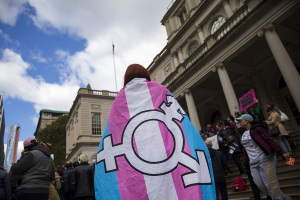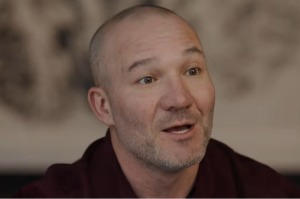What’s the best way to be pro-life?: A Southern Baptist debate

Life is full of surprises, some pleasant, some not. I was reminded of this recently as I witnessed a pro-life controversy and debate revolving around an attack on the pro-life movement’s “incrementalist” approach in fighting to protect our unborn citizens by Southern Baptist self-described “absolutists” who assert that one must demand a ban on virtually all abortions with no exceptions, or one is compromising with evil.
To understand my shock at this development, you need to understand that the Southern Baptist Convention (SBC) is my spiritual home. I was enrolled in the “cradle roll” as an infant in a local Southern Baptist church. I was led to the Lord Jesus as my Savior and Lord at age 6 through a backyard Child Evangelism “Good News” Club sponsored by that church. I was nurtured and discipled in the faith, called to preach, and trained for ministry in a Southern Baptist context.
For those within the Southern Baptist family, you will know what I am saying when I tell you that I was a “sunbeam,” a Royal Ambassador (the Baptist alternative to the Boy Scouts), had several years of perfect attendance pins in Sunday School and spent many summers attending mosquito-infested youth camps Southern Baptists maintained along the Texas Gulf Coast. For good measure, I met and married my wife of 51 years (a Southern Baptist minister’s daughter) while we were seminary students.
I am profoundly grateful for that rich spiritual and cultural heritage that honored the Bible as “truth, without any mixture of error, for its matter” and a deep commitment to the fulfillment of the Great Commission to evangelize at home and across the world.
The SBC has been unapologetically and vigorously “pro-life” ever since the “Conservative Resurgence” began in 1979. I was privileged to contribute to that pro-life effort, having been active in the pro-life cause since before the Roe v. Wade decision in 1973, advocating for the pro-life cause while a seminary student (1969-1972) in states such as Massachusetts and California (under Reagan before he became pro-life), which in the late 1960s passed very liberal abortion laws.
Imagine my shock that a scathing critique of the pro-life movement’s “incrementalist” strategy as a sinful compromise of biblical principles would arise within Southern Baptist life originated by the SBC’s passage of a very problematic resolution “On Abolishing Abortion” at its 2021 annual meeting in Nashville.
This resolution is not, I believe, indicative of where the vast majority of Southern Baptists are on the issue. Here are the reasons why I believe this to be so. First, the same convention meeting that passed this resolution also overwhelmingly passed a resolution commending the Hyde Amendment, a classic case of “incrementalism” in that Hyde forbids the use of federal tax funding or state matching Medicaid funds for almost all abortions. Unless the Southern Baptists attending the Convention were schizophrenic, one of the two resolutions is an anomaly.
Second, the “On Abolishing Abortion” resolution also contradicts numerous pro-life resolutions, all “incrementalist,” passed by the Convention over the last 40 years, some of which I helped write.
Third, as one who has studied the issues of the sanctity of human life within the SBC (as head of the Convention’s public policy agency, the Ethics & Religious Liberty Commission from 1988 to 2013), it was my business to be as fully aware as possible of the pulse beat of Southern Baptists on the abortion issue.
During those years, with remarkable regularity, approximately 85% to 90% of Southern Baptists when surveyed were broadly speaking “pro-life.” About 10% wanted no exception for any reason and just under 10% were against virtually any legal restrictions on abortion. About 40% of Southern Baptists wanted exceptions to save the mother’s physical life and just under 40% also wanted exceptions for rape, incest, and at least fatal deformity in the fetus.
The Ethics & Religious Liberty Commission (ERLC) has a two-fold assignment from the SBC in the public policy arena. As the so-called “conscience of the Convention,” the ERLC has the freedom in that role to call Southern Baptists to be where we believe they should be on moral issues such as abortion based on our understanding of biblical revelation and the Baptist Faith & Message (the Convention’s confession).
During my tenure, the position we called Southern Baptists and other people of faith to embrace was that God is involved whenever conception takes place and that every abortion stops a beating human heart. We argued that the only morally valid reason for taking an unborn baby’s life was to save the mother’s physical life.
The ERLC’s second assignment was to make the three branches of the U.S. government, the United Nations, and the public at large aware of where Southern Baptists actually were (as opposed to where we might have desired them to be) when a consensus position on various issues developed among Southern Baptists.
Accordingly, when the ERLC submitted amicus or “friend of the court” briefs on abortion cases, we informed the Supreme Court that while the great majority of Southern Baptists were opposed to abortion on demand, there was significant disagreement when it came to some of the troublesome exceptions.
Consequently, I signed on to the statement by seven leading Southern Baptist ethicists, “Why We Opposed an Anti-Abortion Resolution at the Southern Baptist Convention.”
In the interest of clarity and to avoid misunderstanding, allow me to state my personal position on abortion, a position which has not changed from 1969 onward. I believe that life begins at conception (Ps. 139:13-16; Jer. 1:5) and that abortion is always the taking of a human life. I believe the only morally valid reason for aborting a pre-born human being is when the pre-born baby is a direct threat to his or her mother’s continued physical existence.
I believe God is involved whenever conception takes place. We may have been a surprise to our parents, but we were not a surprise to God. Each of us was once a child, an infant, and a fetus. None of us was ever a sperm or an egg.
However, since I am not a pacifist, I believe it is morally permissible to protect a human life that is imperiled by taking a human life if that is the only lifesaving option available.
So how do other pro-life Southern Baptist leaders and I answer the charge of the abolitionists that we are compromising with evil by accepting an “incremental” approach to protecting the unborn and their mothers from abortion?
First, when Roe was issued by the Supreme Court in 1973, the pro-life movement was presented with an imperial judicial fait accompli, striking down virtually all the restrictions on most of the laws in the various states that limited abortion. As Benjamin Wittes, senior fellow at the very liberal Brookings Institution correctly concluded, “Roe is a lousy opinion that disenfranchised millions of conservatives on an issue about which they care deeply.”
As a consequence, virtually the entire Protestant-Catholic pro-life coalition embraced the incrementalist approach in order to save as many unborn babies as possible.
They did this after the pro-life movement advanced several human life amendments to the Constitution and proposed sweeping legislation that would have dealt a death blow to abortion on demand. The pro-abortion movement defeated those initiatives. In response, the pro-life movement began to try to save as many babies as they could while they attempted to change hearts and minds.
For example, they passed the Hyde Amendment, which forbade tax funding for almost all abortions. The Charlotte Lozier Institute has estimated that Hyde saves approximately 60,000 lives a year (2,409,311 babies) since 1976.
Should the pro-life movement, incrementalists by political necessity rather than preference, have let these babies die because we could not save all the babies by abolishing abortion? Should we have sacrificed these babies on the altar of the abolitionists’ “ethical purity” and their “more pro-life than thou” argumentation?
What if I came upon a wrecked school bus that had plunged into a river with 60 children onboard? Since I can’t save all of them, should I then do nothing? I think not. I believe God would have me plunge in and save as many as I could, going back again and again as long as there were children to be saved, rather than dithering on the bank, deciding to save none of them because I can’t save all of them.
During my tenure as president of the ERLC, I received a phone call from a Southern Baptist pastor (when you are the head of the SBC’s “ethics” commission you sometimes receive these kinds of calls). The pastor was in the Intensive Care Unit of the Emergency Room with the Chairman of his deacons. The deacon’s wife had been involved in a catastrophic automobile accident and was hovering between life and death in extremely critical condition. She was also pregnant.
The doctors on duty in the hospital were in unanimous agreement that if they were not allowed to take the baby (at 12 weeks’ gestation, too young to survive outside the womb), then both mother and baby would die because of the strain on the critically injured mother’s heart.
The pastor informed me the deacon was asking him, “Pastor, I need my wife and my other three children need their mother. Can I give the doctors the go ahead to take the baby?” The pastor then asked me, “Dr. Land, what do I tell him?”
I answered, “I do not believe you should tell him he can’t. He must seek the Lord’s guidance and make the decision himself.”
Then the pastor asked, “What would you do if it were you?”
I replied, “I would authorize the procedure to take the baby to save the mother of my other children, but I would not judge him if he made a different choice.”
Would the abolitionists really argue that the government should tell him he could not make the decision to save his wife’s life? I fear they might, and they would be wrong.
Another argument advanced by the abolitionists is to be open to criminally charging pregnant mothers in cases where their child is aborted.
From the beginning of my involvement in the pro-life movement in 1969, we have overwhelmingly perceived mothers as victims, not perpetrators, of abortion. That certainly has been and continues to be my understanding, belief, conviction, and experience.
Over and over again I have heard pro-life advocates passionately argue that in any abortion there are at least two victims — the aborted baby and his or her mother.
It is this disagreement over holding the mother legally accountable that has led to the latest controversy on this issue in Southern Baptist life.
Now, there are prominent Southern Baptist leaders who are calling for the defunding of the ERLC because the ERLC’s acting president, Brent Leatherwood, signed “An Open Letter to State Lawmakers from America’s Leading Pro-life Organizations.” This Open Letter, signed by virtually every major pro-life organization in America, states, “Women are victims of abortion and require our compassion and support as well as ready access to counseling and social services in the days, weeks, months, and years following an abortion.”
The letter then concludes with this statement: “As national and state pro-life organizations, representing tens of millions of pro-life men, women, and children across the country, let us be clear: We state unequivocally that we do not support any measure seeking to criminalize or punish women and we stand firmly opposed to include such penalties in legislation.”
For the record, if I were still the head of the ERLC, I would have signed this statement. I would have been ashamed of myself if I had not signed it.
This is the document that some SBC leaders are using as the reason to defund the ERLC.
And this is precisely the moment when the SBC and the pro-life movement have never needed the ERLC more as the battle for hearts and minds for the sanctity of all human life from conception to natural death and everywhere in between is going to go to the elected legislatures of all 50 states. The ERLC will be an invaluable resource to Southern Baptists in every state as they seek to defend the unborn and their mothers in all fifty states.
Instead of calling for the ERLC’s defunding, we should be calling Southern Baptists everywhere to lift up the ERLC presidential search committee and trustees in prayer that God will lead them to the person God has been preparing since before being knitted and embroidered together in the womb (Jer. 1:5, Ps. 139:13-16) to be the next president of the ERLC, whomever he or she may be.
Dr. Richard Land, BA (Princeton, magna cum laude); D.Phil. (Oxford); Th.M (New Orleans Seminary). Dr. Land served as President of Southern Evangelical Seminary from July 2013 until July 2021. Upon his retirement, he was honored as President Emeritus and he continues to serve as an Adjunct Professor of Theology & Ethics. Dr. Land previously served as President of the Southern Baptist Convention's Ethics & Religious Liberty Commission (1988-2013) where he was also honored as President Emeritus upon his retirement. Dr. Land has also served as an Executive Editor and columnist for The Christian Post since 2011.
Dr. Land explores many timely and critical topics in his daily radio feature, “Bringing Every Thought Captive,” and in his weekly column for CP.



























